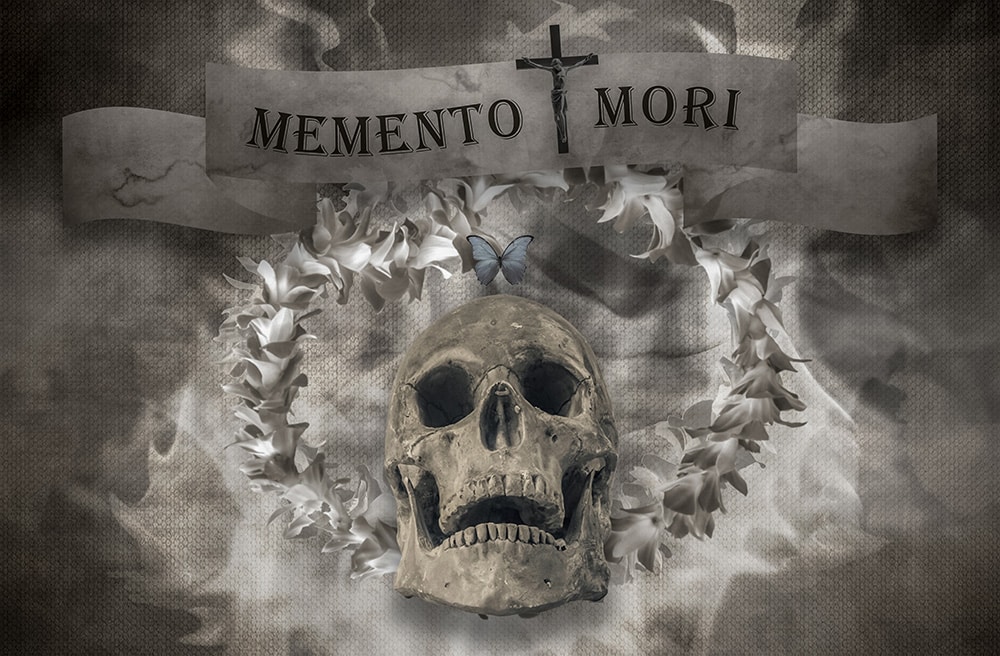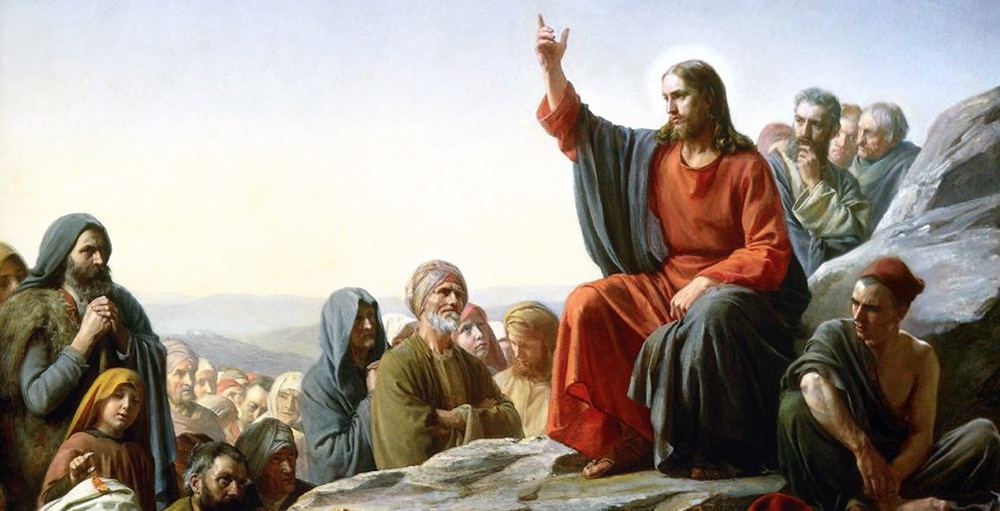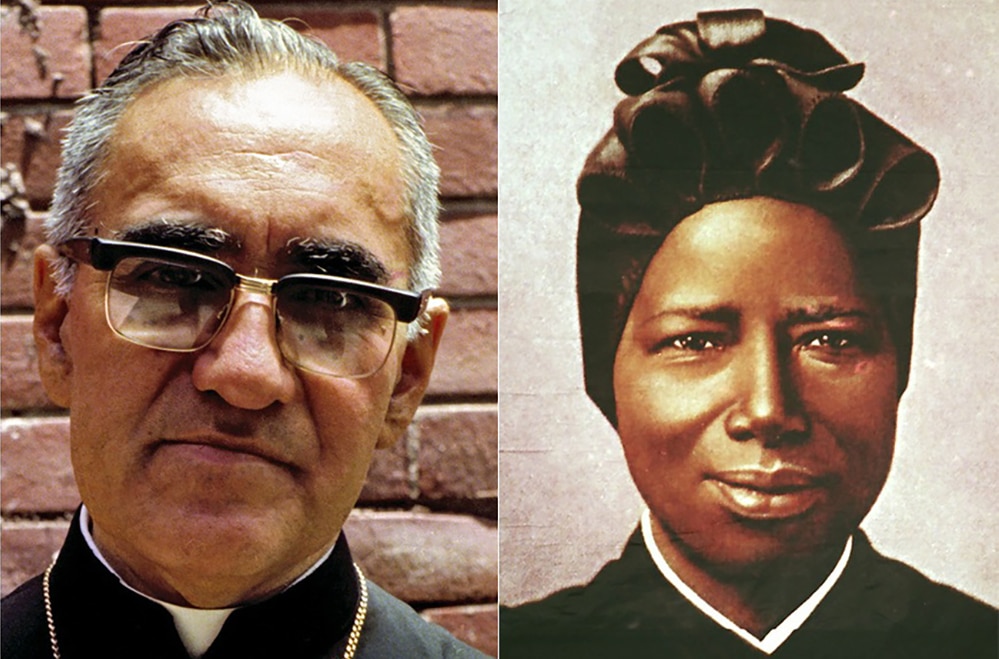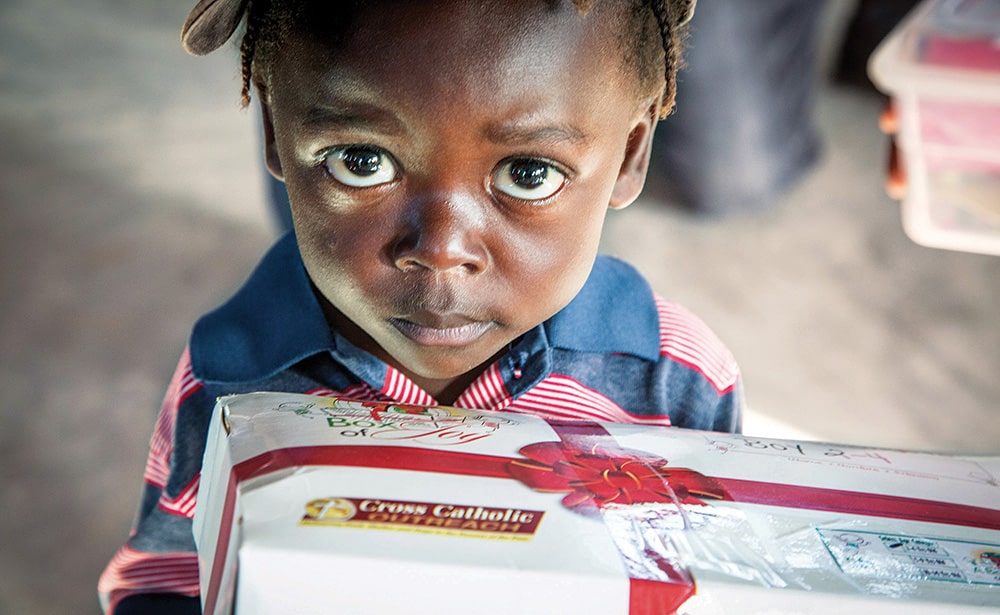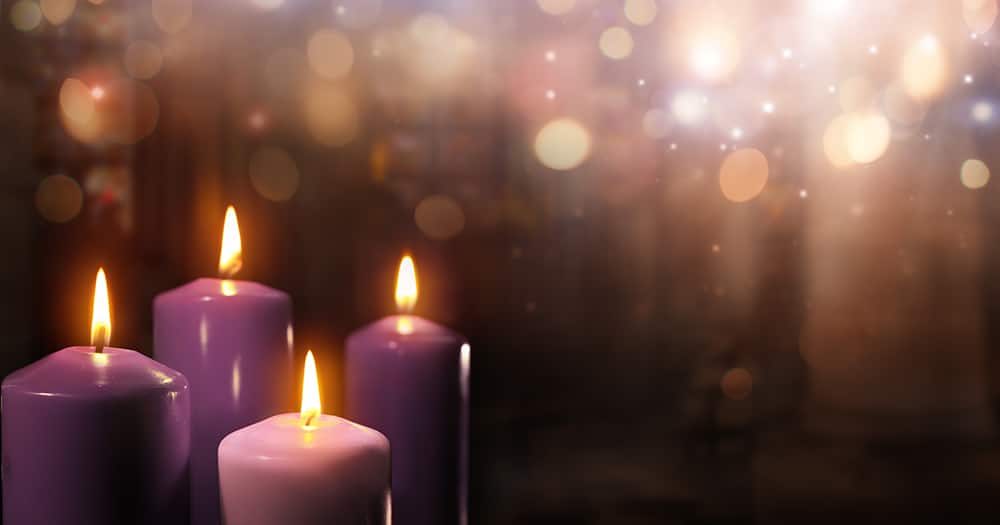The ceramic skull on Sister Theresa Aletheia Noble’s desk is a daily reminder that she will die one day. Rather than ignore death, she prefers to meditate on it.
“Death is a reality of human life. A reality that you or I could face tomorrow,” said Sister Theresa, a Daughter of St. Paul who is at the forefront of trying to revive the ancient discipline of memento mori, Latin for “remember your death.”
“Any day we spend not contemplating and preparing for that reality, even if it’s just for a moment, is a day wasted,” said Sister Theresa, who is active on social media and often uses the #mementomori hashtag along with a skull emoji on Twitter.
Sister Theresa Aletheia is a former atheist who returned to the Catholic Church. She left a job in Silicon Valley to join the Daughters of St. Paul in 2010, and recently she wrote “Remember Your Death: Memento Mori Journal” to guide readers through the spiritual practice of meditating on death. Sister Theresa shared her thoughts on memento mori with Our Sunday Visitor:
Our Sunday Visitor: What has driven your efforts to revive the memento mori?
Sister Theresa Aletheia: I was initially inspired to keep a skull on my desk by Blessed James Alberione, the founder of the Daughters of Saint Paul. He kept a skull on his desk as a memento mori to remind him to meditate every day on his inevitable death. Before I entered the Daughters of Saint Paul, I read this and I thought, “That is so punk rock. Definitely going to do that at some point.” Then I forgot about it. But the idea kept coming back to me. A couple years ago, I got a nudge in prayer to start the practice. So I asked around, and a sister kindly donated a ceramic skull to me from her Halloween supplies, and the journey began.
The first day, I thought, “How am I going to make sure I actually meditate on death?” So I decided to tweet about it. I tweeted, “Day 1 with a skull on my desk,” and then a random thought with the hashtag #mementomori. I figured I would do this for two weeks at most. But I received a huge response, so I decided I would continue for a while. A while has ended up being years. People started buying skulls for their desks and meditating on death along with me. Some people have told me that they returned to the Church after seeing these tweets and thinking about their own death. I never imagined what that one tweet would turn into, but God always has interesting plans.
Our Sunday Visitor: People today, Catholics included, may think that meditating on death is morbid. What do you say to that?
Sister Theresa Aletheia: If it’s morbid to meditate on death then it’s morbid to face reality, to realize the truth of our sinfulness, and to accept the salvation that Jesus Christ has provided for us. If that’s morbid, I am happy to be considered morbid rather than to live life on the surface just because it can seem more comfortable.
The stakes are high in this life, and God wants us to prepare to meet him, to open our hearts more and more to his love so that we are ready to enter into heaven when he calls us. He doesn’t want us to prepare to meet him every once in a while; he wants us to do this every day. Thinking about our death is part of that. It jolts us into preparing to meet him. There really is no way around thinking about death regularly if we want to live for holiness.
Our Sunday Visitor: Do you find that we as a society today, even as a Church, are scared of death or don’t want to think about it? Where do you think that comes from? How do we change that?
Sister Theresa Aletheia: I think it’s a quality of human existence to fear death. A good quality. Our existence is good and, as St. Ambrose wrote, “Death was not part of nature; it became part of nature.” Death comes from sin. In “City of God,” St. Augustine described the startling reality of death as “the very violence with which body and soul are wrenched asunder.”
We would be foolish not to fear death, at least in some sense. However, at the same time, St. Paul tells us that the Christian is called to see death as gain (cf. Phil 1:21). As gain! In “On the Incarnation,” St. Athanasius describes the disciples of Christ as those who “despise death.” So the question becomes, how can we move from this natural fear of death to this fearlessness that is the mark of a Christian? We can only despise death and lose our fear of it by meditating on our inevitable death regularly in the context of what Christ has done for us.
Our Sunday Visitor: How has memento mori impacted your own spiritual life?
Sister Theresa Aletheia: My conversion to a belief in God’s existence completely changed the course of my life. And memento mori has been like a conversion within a conversion. I feel like I was swimming through a haze, and remembrance of death cut through the haze and sharpened everything around me. Now God is my goal, much more than before. I was a nun living in a convent, but God was not my goal.
I cannot say God is entirely my goal even now, but memento mori reminds me continually to make God my goal. We all think we will live until old age, but death could come at any time. Holiness and growing in virtue have become much more urgent in view of the fact that my death is both inevitable and unpredictable.
Our Sunday Visitor: What made you return to the Catholic faith after you ventured into atheism?
Sister Theresa Aletheia: I grew up in Ohio, and then Oklahoma, in a devoutly Catholic family. My father was a theologian, and I knew a lot about the Faith and had strong faith. But I also always had doubts. At least, I can remember having doubts as early as age five. Because of my doubts, the problem of suffering, and several other issues I had with Catholicism, I became a materialist atheist at age 14 and remained an atheist for over a decade.
Eventually, I began to realize that my worldview had rather unsatisfying answers to some of life’s most important questions. For example, I did not believe in the immortal soul. But I was also an animal rights activist and often was unsettled by the implications of this worldview taken to the extreme. I was a strict vegan, but I could never accept what many animal rights’ activists argue, that speciesism — a blind prejudice for one’s own species — was the only reason human life is inherently more valuable than animal life.
I wrestled with this problem and others for years until I had a conversion experience while I was traveling in Costa Rica. I would have never imagined it as an atheist, but my experience of God in that moment eventually led me back to the Church and ultimately into the convent.
Our Sunday Visitor: When did you enter religious life? Why the Daughters of St. Paul?
Sister Theresa Aletheia: God knew where I belonged and revealed it to me over time. I entered the Daughters of St. Paul in 2010 trusting that God would come through. I had no real appreciation for our charism of using modern media to spread the Gospel when I first began visiting the sisters. I was a bit of a Luddite. Even though I worked in IT as a systems analyst, I was suspicious of technology and did not associate religious life with it at all. But I loved communication, writing and evangelization. So, these interests helped me to begin to understand how I had a place in this order. It took me awhile — years — to accept my vocation, even after entering. But the practice of meditating on my death has helped me immensely, not only to accept my vocation but to embrace it and to live it joyfully.
Our Sunday Visitor: Speaking of media, you wrote on Twitter a few months ago — in response to a comment about nuns clutching their rosaries at goths — “Oh please … we are the original Goths.” What did you mean by that?
Sister Theresa Aletheia: Everything good, beautiful and true in any movement or religion can be found in its fullness in the Church. I was into punk rock when I was an atheist, partly because I like the music and partly because in that subculture there’s a strong sense of social justice. Punk music faces the problem of suffering and the ravages of sin head on, though punks would not generally use that language.
Similarly, goths often draw from the riches of Catholicism: the skull symbolism, rituals, wearing black, even drinking blood, etc. It’s all touching in some way on the truths of our faith. Now in some cases, whether a person is aware of it or not, it can become demonic parody. I’m not naïve to the fact that some of these subcultures can lead to dangerous things. But they also often attract people who take life seriously and want to know the truth. So, it’s important to look for the truth in them, it’s how we can draw people to the greater truth in the Church, to Jesus who is Truth itself.
Our Sunday Visitor: What are your hopes for your new prayer book, “Memento Mori: Prayers on the Last Things?” How do you think it will benefit people who use it?
Sister Theresa Aletheia: Meditating on death periodically is unfruitful and unpleasant. This practice has the potential to reap abundant fruits in people’s lives, but it needs to become a habit. So, when I started to see how many people were responding to my memento mori journey, I realized that resources were needed for people to integrate this practice into their lives.
As part of our media ministry, The Daughters of Saint Paul run a publishing house, Pauline Books and Media. So, I brainstormed with my sisters and we came up with some ideas. Last year, we released a memento mori journal and a Lenten devotional. This November, we are releasing a memento mori prayer book that I compiled and wrote on all of the Last Things — death, judgment, hell and heaven. I moved to addressing all of the Last Things because meditation on death, for the Christian, is a doorway to meditation on all of these realities. All of these projects are so important because with them memento mori can move from a superficial interest or a passing fad in a person’s life to a life-changing habit.
Our Sunday Visitor: With All Saints Day and All Souls Day coming up this week, is this a particularly poignant time in our liturgical calendar to ponder memento mori?
Sister Theresa Aletheia: Traditionally, November has been a time to pray for the deceased, so in the past it was often associated with meditation on death. Our older sisters tell me that during the month of November, they used to place a small coffin in the middle of our chapel to remind the sisters of their mortality. These kinds of practices used to be more widespread. The days of Advent were often set aside for meditation on the Last Things as well.
I think the loss of many of these practices in the Church is indicative of a deep and very serious illness. In many ways, we have lost the eschatological context of our faith. And without that, our faith means nothing. I did not convert from atheism just because I prefer being a Christian in this life. Certainly, being a Christian leads to happiness in this life but it’s also difficult and painful. We are being purified in this life to prepare for the next. Christians accept and embrace this purification because we are preparing to meet Jesus.
The practice of memento mori helps us to enter into the eschatological context of our lives. St. Paul exhorts us, “work out your salvation with fear and trembling” (Phil 2:12). Memento mori takes seriously this life and the next. This is the only way to happiness. Happiness both in the here and now and happiness in eternal life.
So, though meditation on death is definitely appropriate to this liturgical season, I encourage people to integrate it into their daily lives all year round. We can die at any time! So, there’s no break from preparing our hearts, minds and wills for that reality. That might sound frightening, but in the context of our faith, preparation for death is about union with God, and nothing is more important for the Christian. Nothing is more desirable. Nothing brings us greater joy.
Brian Fraga is a contributing editor for Our Sunday Visitor.

